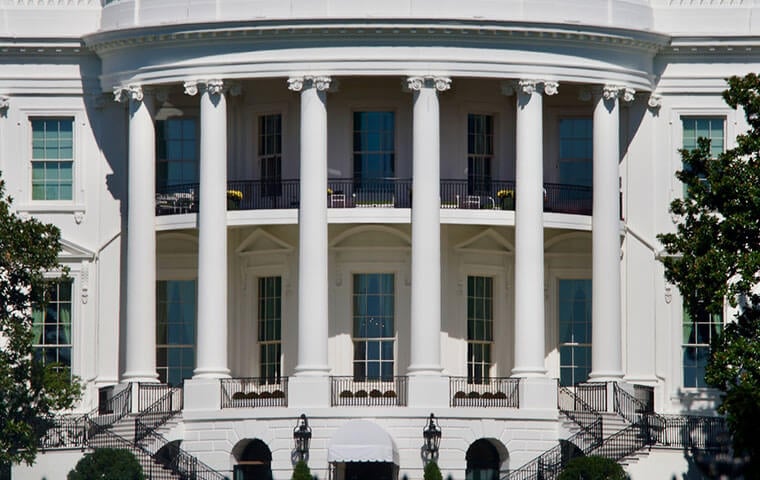 50,000 has become the widely accepted figure, based on projections by former Trump administration officials who are laying the groundwork for a return of the policy should he be elected in November. Image: Marcel Hamonic/Shutterstock.com
By: FEDweek Staff
50,000 has become the widely accepted figure, based on projections by former Trump administration officials who are laying the groundwork for a return of the policy should he be elected in November. Image: Marcel Hamonic/Shutterstock.com
By: FEDweek StaffThe return of an excepted service Schedule F in a future Republican administration could impact far more federal employees than the commonly used estimate of 50,000, the NTEU union has said after obtaining a breakdown of how OMB would have internally carried out the original, short-lived version.
OMB was one of the few agencies that took concrete steps toward carrying out a late-2020 Trump administration order to identify competitive service positions involved in making or carrying out policy or providing confidential advice to political leadership. Under the order — which was quickly revoked when the Biden administration took office the following January — agencies then were to submit them for OPM review. Once OPM approved — as it did for OMB’s list — agencies were to move those positions into the excepted service, where they would lose most civil service protections and where jobs could be filled without competition.
Estimates varied widely of how many employees would have been affected, but 50,000 has become the widely accepted figure, based on projections by former Trump administration officials who are laying the groundwork for a return of the policy should he be elected in November.
The NTEU, though, says that the number could be tens of thousands higher, having received the OMB list from a Freedom of Information Act request. In addition to roles traditionally associates with policy, the OMB “absurdly stretched the definition of policy work to cover the vast majority of the OMB workforce, from attorneys to GS-09 assistants and specialists who have nothing to do with setting government policy,” it said.
The OMB list encompassed positions such as economists, IT specialists, a toxicologist, correspondence specialists and FOIA officers, showing that a revived Schedule F could be used “to threaten the job of any federal employee they want with flimsy claims about handling policy documents or confidential memos,” the union said.
OPM last fall issued proposed rules—expected to be finalized within several months—to generally limit the excepted service to positions it already covers; require that any career employees who are converted to the excepted service would retain their civil service rights; and make any conversion causing them to lose rights appealable. On the expectation of those rules taking effect, the MSPB recently proposed rules to make conversion from the competitive service to the excepted service appealable there as an improper personnel action.
The rules could be revoked by a future administration, but only through a formal process to take them off the books, not by a simple executive order. That would give unions and other opponents a chance to file legal challenges.
Deferred Resignation Periods about to End for Many; Overall 12% Drop
Retirement Surge Likely as Deferred Resignation Periods End
Senate Rejects Bills to Defer Shutdown; Familiar Process Lies Just Ahead
Senate Bill Would Override Trump Orders against Unions
Report Describes Impact of Shutdown on Employees, Agencies
TSP Adds Detail to Upcoming Roth Conversion Feature
See also,
How to Handle Taxes Owed on TSP Roth Conversions? Use a Ladder
The Best Ages for Federal Employees to Retire
Best States to Retire for Federal Retirees: 2025

